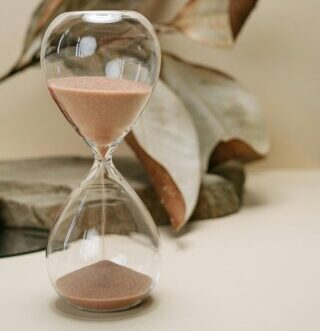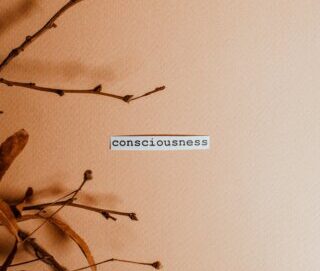If I ask you, what is a moment? The impression in your mind will be of something close to a photograph. A still image, a single frame completely still. Although sometimes we relate a moment to a small instance of time, like few seconds or even minutes, but philosophically moment has a different meaning. Philosophically a moment is an “instant of time”. Photographs and images are the closest things we have to a moment; actually, an image is the only proof we have that a moment exists, because we ourselves can’t even perceive it.
As you may know that the moment you try to perceive a moment, that moment is already gone. You may find a second as a synonym of moment but second is not a moment, because a second can be further divided into smaller instances of time. A moment has to be indivisible, that is what it signifies, a single indivisible instance of time, much like a still image. This is why I said that images are the closest things we have to the concept of a moment.
To capture a moment
But images are not moments. They do represent the idea of a moment, but they are not representing a moment itself, why? That’s because you see images in the DURATION of time. Images are illusion of a still point in time as you can’t perceive a moment in an already running time. So, if even images are not the real deal, what would it be like to perceive an actual moment?
Now bear with me in this, imagine a part of time where there is no duration, a part so small, there is no distance between point A and point B, more correctly there aren’t any point A and point B, an instance of time with no interval at all. How could something exist in an instant? Because for something or anything to exists, or even to simply be, it needs duration, even if a tiny, miniscule one, but it still needs some sort of duration.
The paradox
There can be no experience without any duration. There can be nothing without duration, even the time itself can only exist in duration. A time without any duration at all, doesn’t make any sense at all. Then, weirdly enough time cannot have a moment or an instant. Time only exists in durations and so does everything else. Hence, there can’t be a moment in time.
This is actually an age old issue referred to many times through different paradoxes like “Achilles paradox”. Though a paradox which is in more resemblance to the issue will be close to this hypothetical example, imagine a car travelling from point A to point B, and there are also a number of points between these two points, but it doesn’t seem to exist at any individual point between the both points, which means if you stop the car anywhere between the two points, it will stop existing. For this car to exist, it requires a continuous motion.
An even more refined example will be a wall, where there are no bricks, only a wall of bricks. Modern science has tried to tackle this, and various other problems related to time and space by giving infinity its own hypothetical “true” identity. If we leave the entire brain traumatizing math aside, it basically means that even infinite true events can happen in a single instant.

Enjoy reading 12,500+ magazines anytime and anywhere
The infinity issue.
But the thing is it seems that there is no real way to realize outside of hypothetical scenarios. Whenever we have tried to track the trail of any object or event related to time or space, we end up at a point beyond which any particle, event or measurement is impossible. This is a common problem and it kind of implies that infinities can only lie in the world of concepts.
In case of time plank time is considered as the smallest possible measurable time event. It’s not like that we don’t have numbers to measure beyond plank time; it’s more like the laws of measurement don’t work after this. Beyond plank time there is no difference between starting and ending point of duration, they are same.
So, if you have followed this from the start, you will see that a moment is a time or more correctly lack of time beyond this plank time limit. This is a true instant of time, without any interval or duration. Maybe we will be able to measure some sort of time beyond this plank limit in future, but because the nature of the matter, there can’t be an absolute solution to the problem of “instant of time”. There will always be a point after which there won’t be any duration, if that point is not the plank time, then it only means that we haven’t found it yet.
Illusion of time
And yet, we come back to our main issue, how can there be a wall of bricks when there are no bricks in it? The way I see, time is like a river in more ways than one. You see there is nothing like a “still river”, flowing of the river is the river itself, the second river stops, there is no river anymore, now it is a lake. Time is like that, it’s not that time is moving, it’s actually movement itself is time. Without any kind of movement there is no time.
Time doesn’t have duration; time is the duration. All the movement lies in durations, you can’t separate a movement from duration or an interval. Duration is time; there is no “instant of time” in time.
So what about our bricks then? This all led us to an obvious conclusion but still let me explain it in depth. The one odd thing about time is you can perceive the effect of time over yourself or over your surroundings, but you can’t perceive the “time” itself. Time as a whole isn’t a small phenomena and yet, all you can realise is the consequences of time but not the culprit itself.
The same thing can be said in a different way too, durations of time are not stable by any means. What I mean is, durations are a “crumbling phenomenon”.
You can never pinpoint a duration; you can only conceptualize it relative to other events. Now, how is there a wall of bricks without bricks? It’s simple, there isn’t, or at least it’s not a “wall of bricks” at all. Time is more like an idea than a real concept.
Change is time.
The thing is, things change and with that change everything changes too, our ideas, perception, beliefs, thoughts, outer world and inner world all are prone to change, nothing in the world is substantial, nothing remains the same even for a miniscule amount of duration. Some changes are on the surface level or are prominent; they are so obvious that you can’t help, but to notice them.
But then there are others, subtle changes, minute ones, so miniscule that our crude eyes have no hope of catching them, or even spotting any kind of difference. What we see on the surface level as the stagnant events or stagnant happenings are continuously in the process of changing behind the veil.
Even the solid looking objects and things which although may take centuries to decay and disintegrate are constantly changing at the atomic level. Atoms themselves are continuously in the momentum or vibrating even if they are alone.
Things, which may seem unchanged even for a short duration requires a deeper look at their state, a deeper look or a more refined observation may reveal otherwise. Energies are always balancing, altering, converting from one stage to another. Constant or persistent states are only illusions or at least are the result of crude observations.
Although, some alterations are so subtle that pointing them out all the time is usually unnecessary, a hassle and wastage of time, so we tend to ignore them and other times don’t even realize that they are there, but that doesn’t mean those alterations aren’t there.
There’s no still time
With the realization of these alterations, we found a need to define them, to look for a universal phenomenon that we can attach to the “change”, basically a name to this ever-altering nature of everything and so we did. We gave it a name; we called it “time”.
Imagine a state of everything without any change, not even at the quantum level; can time exist in such a state? How will you define time here? Let’s say everything goes into this state for next one hour from here on out, it can be argued that time still exists because for next one hour everything is going to be unchangeable, but the problem is what is the difference in the first and the sixtieth minute of such an hour.
An interval of nothing
How will you define the difference? Without any objective and perceivable change what is an hour? If the world stops for next one hour, you will not even realize that it was stopped. When it starts again, for you, there will be no difference at all if it stopped for an hour or for a thousand or million years.
There can be a more realistic example for this, when a person goes into a complete coma, a persistent vegetative state, they can’t tell the amount of time has passed while them being unconscious, after waking up.
Yes, it’s because they were unconscious, but that’s the thing, time stops when there is no change in a state. Now, obviously time hasn’t stopped here for others, neither did the alterations. Other people had perceived changes during the time even in the said person’s body and brain activity, and because they still perceived changes, time still existed for them, but for the person who was in coma, their consciousness had definitely gone to an unfaltering state with no alterations and that’s where time had stopped.
If we go to the scientific side of things, it is theorized that around a black hole time stops completely and one can see this in effect from a distance as things falling into a black hole will seem as they are stuck in time and space. This is because of the effect of gravity on time and space. The difference here is also a difference in experiential perception of alteration, how much rapidly or slowly you are experiencing change is what you are calling a time variation here.
A fairytale of time
One outside of black hole perceives the change at a laggard rate than the one inside the black hole. Without including change in the equation it’s impossible to pin point time events because time is the way we define all kinds and types of changes that we can perceive. Time as a discreet phenomenon does not exist; time on your clock is the movement of small wheels at a predefined rate, time is more like a calculative observation of alterations, but it’s not perfect, alterations on a same plane can be at a completely different rate.
If you perceive same amount of time on a clock at a slower pace, you will find that time has slowed down for you like an hour spent in agony and suffering can be as long as two or even more, although clock won’t sympathies with you, that’s because, the alterations clock is observing are changing at a faster rate than the alterations you are perceiving.
Clock can’t calculate your rate of alterations, only its own, and thus same duration of time can be actually longer or shorter for you, and you may know that it’s usually becomes shorter when you are having a really good time.
Without any alterations
Now, because there are no alterations in moment or instant, that’s why there is no time there. If time was a separate or distinct phenomenon than change, then it would be present even at the points where there is no change, like at the “moment”.
Convenience is one of the biggest leisure that we desire, and that gives birth to so many concepts, names and ideas. I had heard once that this is a world of names, everything has a name, but you can never find the named thing anywhere, like there is no wall in a wall, only bricks, plaster and paint. I do agree with this to a degree, but this idea can go much deeper than that.
At least, wall does exist as a united structure of above-mentioned parts, but there are things that only exist as names and vague concepts, things that use other phenomena to even exist in the first place, things like TIME and things like MOMENT.
Quench your thirst for reading here.






